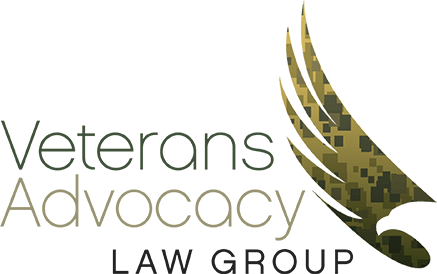Challenges And Delays In the SDVOSB Verification Process
HR 3945 is another attempt to revamp the SDVOSB Verification Process. The SDVOSB CVE verification process can be tricky. On November 5, 2015, Representative Mike Coffman, along with five co-sponsors introduced HR 3945, titled Improving Opportunities for Service-Disabled Veteran-Owned Small Businesses Act of 2015. While the text of the bill was not available at the time of this writing, Ben Stein, Coffman’s chief of staff, sent over a brief description of the components of the bill. Importantly, Representative Coffman, who served in both the United States Army and Marine Corps as both enlisted and an officer, has submitted similar bills for passing in previous sessions of Congress.
As in previous versions of the bill, this legislation would unify the definitions of the VOSB and SDVOSB; unify VA and SBA regulations; and create an appellate process by which SDVOSBs can challenge an agency decision. This last part is likely the most important issue to any veteran business owner who has been denied inclusion in the Vetbiz database. Currently, bid protests relating to an SDVOSB’s eligibility to compete for set-asides, for all agencies except the VA, are adjudicated through the SBA’s Office of Hearings and Appeals. Conversely, a veteran owner’s only recourse if denied inclusion in the Vetbiz database is to file a request for reconsideration, which is reviewed by the CVE’s interim director.
The introduction of this bill is particularly timely because the GAO recently completed a report on the Vetbiz verification process. In testimony before congressional subcommittees, of which Congressman Coffman was co-chair, the GAO spokesman related that the “VA uses contractors to support its CVE verification program and Federal employees oversee the contractors and review and approve verification decisions. As of September 1, 2015, CVE had 15 federal employees in 156 contract staff (employed by 5 different contractors) verifying applications or filling supporting roles.” The budget for the program decreased from 17.9 million and 2014 to 16.1 million for the fiscal year 2015. While the GAO found that the CVE had reduced its average processing time, the CVE admitted that it “stopped the clock,” while it waited for Veteran owners to submit the documentation it requested. That process, combined with the veteran owner’s ability to withdraw and resubmit as many times as necessary resulted in approximately 15 percent of applications taking in excess of four months from original submission to final determination. All of this works together to make the SDVOSB verification process more difficult than it needs to be.
The report from GAO noted that CVE performed 606 post-verification site visits in the fiscal year 2015 and issue 25 cancellations to firms found noncompliant with program regulations at the time of the site visit. The GAO also spoke with “verification assistance counselors” who agreed on the following points:
All of the CVE verification assistance counselors we interviewed also stated that the VA’s determination letters to applicants could be clearer and that they include regulatory compliance language that could be difficult for some applicants to understand. VA officials maintained that the inclusion of regulatory language in the determination letters was necessary, but acknowledged that this language can present readability challenges. We also observed several instances in our review where a letter initially stated that documents were due on one date, and then later stated the applicant should disregard the initial statement and that documents were due on a different, earlier date. VA officials said this was due to a glitch in the system that generated the letters and this issue was resolved in May 2015.
Pilot Program
As of September 2015, the CVE has implemented a Pilot Verification Process, designed to improve the SDVOSB verification process, which includes the following changes:
- Veteran applicants will have a single point of contact, the case manager, who will be familiar with the veteran’s application status and any issues that arose during the process.
- Veterans would be interviewed by CVE staff early, which will presumably allow staff to identify issues of front and avoid having to conduct multiple reviews of applications for firms not meeting program requirements.
- One CVE contractor evaluates each application for regulatory compliance, which helps to eliminate duplication of responsibilities. This deviates from the current practice of two CVE contractors evaluating each application for regulatory compliance.
What Steps Should I Take To Ensure My Business Meets The SDVOSB Verification Requirements Under HR 3945?
Ensuring your business meets the new Service-Disabled Veteran-Owned Small Business (SDVOSB) verification requirements under HR 3945 requires careful preparation and compliance with updated regulations. As experienced SDVOSB verification lawyers in Colorado serving clients nationwide, we recommend several essential steps.
Familiarize yourself with the key changes introduced by HR 3945. This includes understanding the unified definitions of Veteran-Owned Small Business (VOSB) and SDVOSB, as well as the harmonized regulations between the Department of Veterans Affairs (VA) and the Small Business Administration (SBA). Keeping abreast of these changes will help you know what specific criteria your business needs to meet.
Review and update your documentation to ensure it aligns with the new requirements. This includes proof of service disability, ownership, and control of the business by a service-disabled veteran. Accurate and thorough documentation is crucial for successful verification. Our Colorado SDVOSB verification attorneys serve clients in the U.S. and can assist in reviewing your documents to ensure they meet the new standards.
Lastly, consider seeking legal advice from specialized SDVOSB verification lawyers at Veterans Advocacy Law Group. Our firm offers comprehensive services to help businesses like yours navigate the complexities of the verification process. We can guide you through each step, from initial preparation to final verification, ensuring full compliance with HR 3945.
By taking these proactive steps, you can position your business for successful SDVOSB verification under the new legislation.
If you are a Veteran with a business and have a problem with a government contract, please contact the experienced attorneys at Veterans Advocacy Law Group at (888) 680-9612 or complete an online contact form.

